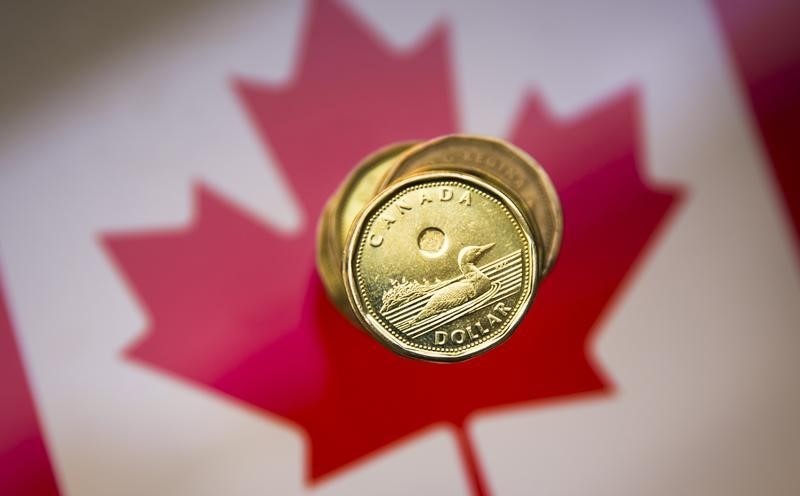* Canadian dollar at C$1.3075, or 76.48 U.S. cents
* Bond prices lower across the yield curve
TORONTO, Feb 1 (Reuters) - The Canadian dollar weakened on Wednesday against its U.S. counterpart, which recovered some recent lost ground ahead of an interest rate decision from the U.S. Federal Reserve.
Stronger-than-expected U.S. private payroll data helped support the U.S. dollar .DXY , which strengthened against a basket of major currencies. It follows the worst start to the year in three decades for the greenback on concerns that the United States was poised to ditch its two-decade-old "strong dollar" policy. uncertainty only added to expectations that the Fed will keep interest rates steady on Wednesday. But the central bank may reinforce the risk of higher inflation, which could weigh on the Canadian dollar against the greenback. of Canada Governor Stephen Poloz reiterated on Tuesday that the firmer Canadian dollar was a headwind for the export sector, where growth has not been as strong as the bank anticipated. loonie rose 3.2 percent in January after climbing 3.1 percent in 2016. On Tuesday, it touched its strongest level since Sept. 9 at C$1.2969, helped by data that showed the economy expanded at a faster-than-expected pace in November.
At 9:22 a.m. ET (1422 GMT), the Canadian dollar CAD=D4 was trading at C$1.3075 to the greenback, or 76.48 U.S. cents, weaker than Tuesday's official close of C$1.3012, or 76.85 U.S. cents.
The currency was trading in a range of C$1.3032 to C$1.3093.
Losses for the loonie came even as prices of oil, one of Canada's major exports, rose on signs that Russia and Organization of the Petroleum Exporting Countries producers are delivering on promised supply reductions. O/R
U.S. crude CLc1 was up 0.97 percent at $53.32 a barrel.
Factories across the world fired up, or at least kept up activity, in January. Some countries registered multiyear highs in output, just as a barrage of political risks threatens the global economy with potential harm. government bond prices were lower across the yield curve in sympathy with U.S. Treasuries as the U.S. payrolls data weighed.
The two-year CA2YT=RR dipped 2.5 Canadian cents to yield 0.784 percent, and the 10-year CA10YT=RR declined 25 Canadian cents to yield 1.787 percent.
